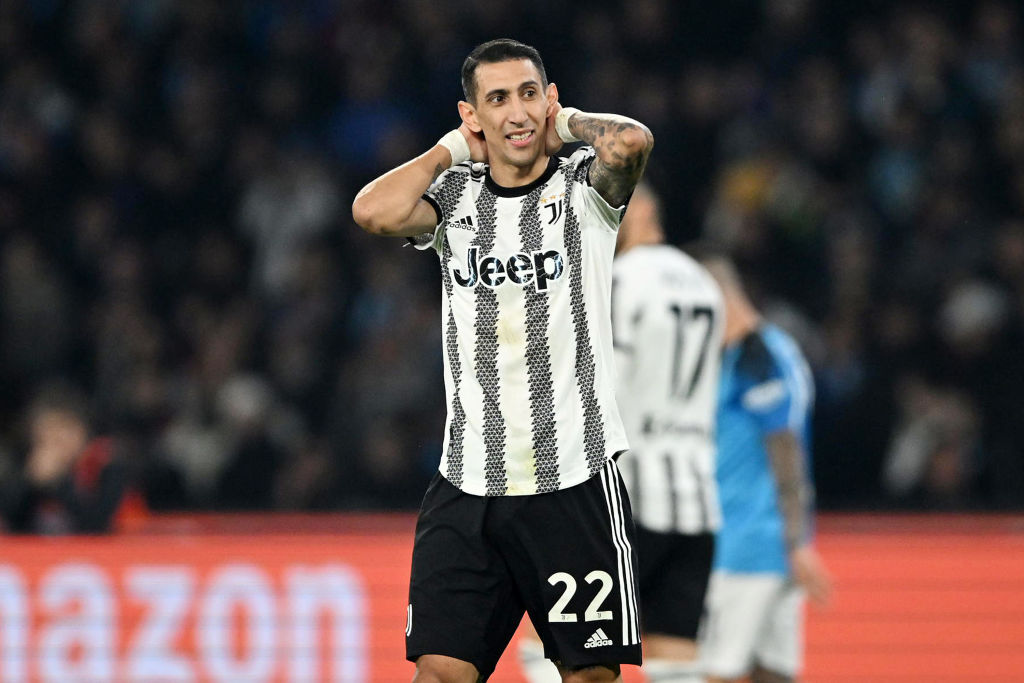Juventus: Why Italian football’s latest scandal has sent its most successful club tumbling down Serie A – and what it means for Tottenham Hotspur and plans for a European Super League

While Manchester City are facing claims they systematically broke financial rules, Juventus have already been docked points for their own scandal in Serie A – and it might be about to get worse.
Heard the one about the serial domestic champions brought to heel over allegations of systematic abuse of financial regulations? Except this isn’t about Manchester City and the Premier League but Juventus and Serie A, and a scandal with implications for the European Super League, Tottenham Hotspur and some of football’s biggest names.
The “plusvalenze” – capital gains – case exploded again last month when Juventus were found guilty of generating artificial profits by inflating the value of players used in swap or part-exchange deals. Italy’s football authorities threw the book at them, issuing a 15-point deduction and instantly knocking the Turin giants out of the title race and into mid-table.
It had almost come to nothing. The charges were initially dismissed in April last year but fresh evidence from wiretaps and a training-ground raid blew it wide open again and led prosecutors to mount a successful appeal. Perhaps sensing the worst, the entire board of Juventus, including influential chairman Andrea Agnelli, resigned in November.
But things could yet get considerably worse for Juve. They are also accused of secretly playing players who were supposed to be foregoing wages during the pandemic and, as a listed company, misleading the market. A further 20-point penalty from football chiefs has been mooted, while the separate “Prisma” probe by local prosecutors is to be heard next month.
The episode has ominous echoes of the “Calciopoli” scandal, which saw Juventus stripped of the 2004-05 Serie A title and relegated to the second tier after their executives were found to be the worst offenders among a handful of clubs trying to influence referees, and has left the team, staff and fans are in a state of limbo, unsure of what they are playing for.
“In 2006 I remember watching Juventus games and not knowing what would happen, or if their goals would count. Now I have a similar feeling,” Turin-based journalist Lorenzo Bettoni, an editor at Football Italia, told City A.M. “You don’t know what’s going to happen tomorrow or at the end of the season. There’s a feeling of uncertainty.”
Having bounced back from the Calciopoli affair to win nine successive titles and reach two Champions League finals, the club known as the Old Lady has been dragged through the mud again. “Juventus worked hard to reposition the club’s reputation,” Carlos Hurtado, team leader of sports law at Baker McKenzie’s Madrid office, told City A.M. “Further off-field controversy threatens to undo the steps taken to reaffirm the team as a competitive, reputable organisation.”
There could also be dire financial consequences for Juve, whose big-money gamble on signing Cristiano Ronaldo in 2018 left them exposed when they slipped off their Serie A perch two years ago and the pandemic battered the Italian economy. Revenue will take a big hit from missing the Champions League next term, while relegation would also deliver a swingeing blow.
Sponsors “will be looking at how this issue develops closely” and “may not want to be associated with a club that is found guilty of malpractice”, said Hurtado. Front-of-shirt partner Jeep’s contract is due to expire next year. Juve’s share price, meanwhile, is down 19 per cent in the last year and could fall further.
A summer player clear-out is already planned in order to cut costs, with Angel di Maria and Adrien Rabiot among those tipped to leave. Paul Pogba has so far indicated he will stay, but relegation may make that untenable. Forwards Dusan Vlahovic and Federico Chiesa currently look like their best hope of raising money in the event of a fire sale.
The shockwaves could be felt in London, too. Fabio Paratici, Juve’s sporting director during the period between 2019 and 2021 subject to investigation, is now in the same role at Tottenham Hotspur. He was banned from Italian football for 30 months for his role in the scandal. Fifa has not yet decreed whether it will follow suit and extend the ban worldwide.
Perhaps the biggest loser in all of this is Agnelli. Part of one Italy’s richest dynasties, he rose to become one of football’s most powerful executives and unofficial spokesman for the big continental clubs but was booted out of Uefa and branded “a snake” for his leading role in orchestrating the failed European Super League breakaway.
Now he has lost his position at Juve and any remaining clout, too. “Agnelli had been saying for years that he was Robin Hood, saving the poor, when in reality he was robbing the hood,” one football industry insider quipped. His ostracising represents yet another blow to the twitching corpse of the European Super League.
Uefa, meanwhile, is likely to bring its own action against Juventus. Having seen its revised financial fair play rules accused of lacking teeth, the European governing body has a perfect opportunity to show how hard the regulations can bite by making an example of a club that remains one of its biggest critics. Bettoni added: “This isn’t the end of the story.”
